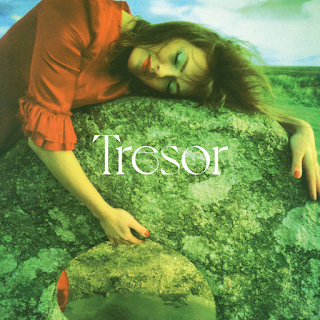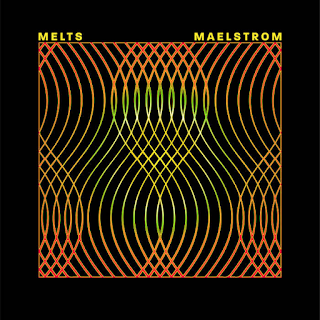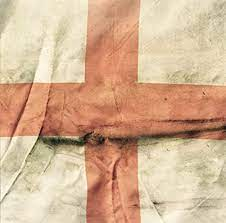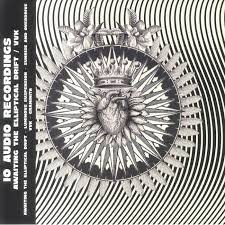Monday, 26 December 2022
Message to Rishi
Wednesday, 21 December 2022
Musical Highlights of the year:2022
5: Moon Goose - La Nuit
6:The Comet is Coming - Hyper-Dimensional Expansion Beam
7: Melts - Maelstrom.
8: Cosmo,and the Objektors - Cop This
9: Julian Cope - England Expectorates
11: Newtown Neurotics - Cognitive Dissidents
12: Spiritualised- Everything Was Beautiful
13: Bjork -Fossora
14:Spurious Transients - Fake Music
15:Sendelica - One Man Man's
16: Cate Le Bon- Pompei
17: Dream Syndicate - Ultraviolet Battle Hymns And True Confessions.
18: Majazz Project - Al Fajer (The Dawn) فرقة الفجر الفلسطينية
19: Omega Tribe - New Peace Movement
20: Mdou Moctar - Afrique Victime
21: El Universo - El Universo
22: Awaiting The Elliptical Drift / VVK - IO Audio Recordings
23:Burum - Eniadau
24:. Sun Ra Arkestra – Living Sky
25:The Master Musicians of Jajouka- Dancing Under The Moon
Tuesday, 20 December 2022
Mōdraniht / Night of the Mothers
Bede seems to be reliable on many of the observations he makes of other cultures. Unfortunately, he did not elaborate on the "ceremonies" that he "suspected" were performed on Mōdraniht, and we have no other contemporary source for information on what the celebration entailed.
Sunday, 18 December 2022
International Migrants Day 2022: It takes a community
Women, men and children around the world are fleeing war, persecution and torture.They have been forced into the hands of smugglers and onto dangerous journeys across the sea in rickety old boats and dinghies. Many have lost their lives. Those who have made it often find themselves stranded in makeshift camps in train stations, ports or by the roadside. And still, politicians across Europe fail to provide safe and legal routes for people to seek asylum.
Saturday, 10 December 2022
Human Rights Day 2022: Dignity, Freedom and Justice for All
Although the Declaration with its broad range of political, civil, social, cultural and economic rights is not a binding document, it inspired more than 60 human rights instruments which together constitute an international standard of human rights. It has helped shape human rights all over the world.
Today the general consent of all United Nations Member States on the basic Human Rights laid down in the Declaration makes it even stronger and emphasizes the relevance of Human Rights in our daily lives.The High Commissioner for Human Rights, as the main United Nations rights official, plays a major role in coordinating efforts for the yearly observation of Human Rights Day.
Thursday, 8 December 2022
Cyclical rhythms
Sunday, 4 December 2022
The NSPCC / JCB and Letters to Santa Claus
Josephine.Swinhoe@NSPCC.org.uk director of income generation
Peter.Wanless@NSPCC.org.uk chief executive @peterwanless
David.Hamilton@NSPCC.org.uk director of communications and marketing
Claire.Watt@NSPCC.org.uk director of services
Neil.Berkett@NSPCC.org.uk chair of trustees @neilberkett
Mark.Corbidge@NSPCC.org.uk treasurer
j.begent@nhs.net @jobegent9
other trustees using same email format
Elizabeth Brash
Peter Daffern
Eithne Daly @eithnedaly
Pippa Gough @pippagough
Ife Grillo @ifetalksback
Albert Heaney
Andrew Kerr @andychariots
Tarek Khlat
Derrick Mortimer
Sheanna Patelmaster @5h34nn4
Sarah Ridgway
Tom Toumazis @tomtoumazis
Emma Smyth
Tuesday, 29 November 2022
International Day of Solidarity With The Palestinian People 2022
The date of 29 November chosen has meaning and significance to the Palestinian people. Because on that shameful day in 1947, the General Assembly adopted resolution 181(II), which came to be known as the Partition Resolution. That resolution provided for the establishment in Palestine of a “Jewish State” and an “Arab State”, with Jerusalem as a corpus separatum under a special international regime. Of the two States to be created under this resolution, only one, Israel, has so far come into being.
This United Nations decision unleashed a catastrophe whose reverberations Palestinians continue to experience until today. On 14 May, 1948, the state of Israel was formed.Three-quarters of a million Palestinian Arabs—who were the majority of the population of historic Palestine, fled for their lives after experiencing or learning of massacres by Zionist paramilitary organizations, or were expelled from their homes during the ensuing Arab-Israeli war of 1948. By the 1949 armistice, the original partition lines had shifted violently so that Israel’s footprint became much larger than envisioned by the proposed partition plan, it was accorded 55 percent by the plan, but seized an additional 25% of Palestinian territory.
The Palestinian people, who now number more than 8 million, live primarily in the Palestinian territory occupied by Israel since 1967, including East Jerusalem, part of which is now administered by the Palestinian Authority; in Israel; in neighbouring Arab States; and in refugee camps in the region.
The International Day of Solidarity has traditionally provided an opportunity for the international community to focus its attention on the fact that the question of Palestine is still unresolved and that the Palestinian people is yet to attain its inalienable rights as defined by the General Assembly, namely, the right to self-determination without external interference, the right to national independence and sovereignty, and the right to return to their homes and property from which they had been displaced.
Friday, 25 November 2022
Another anniversary we should never want to Forget
One year ago,on 24/11.22 a rubber dinghy carrying 34 people sank in the English Channel. There were two survivors. in what was the worst disaster on record involving migrants in the sea separating France and the United Kingdom, an incident that shocked people around the world.





























.jpg)



